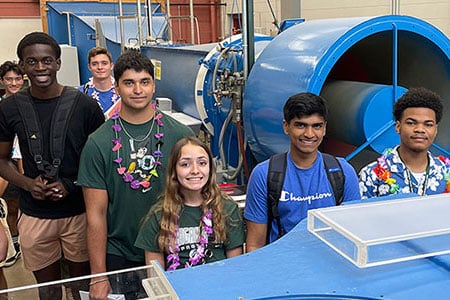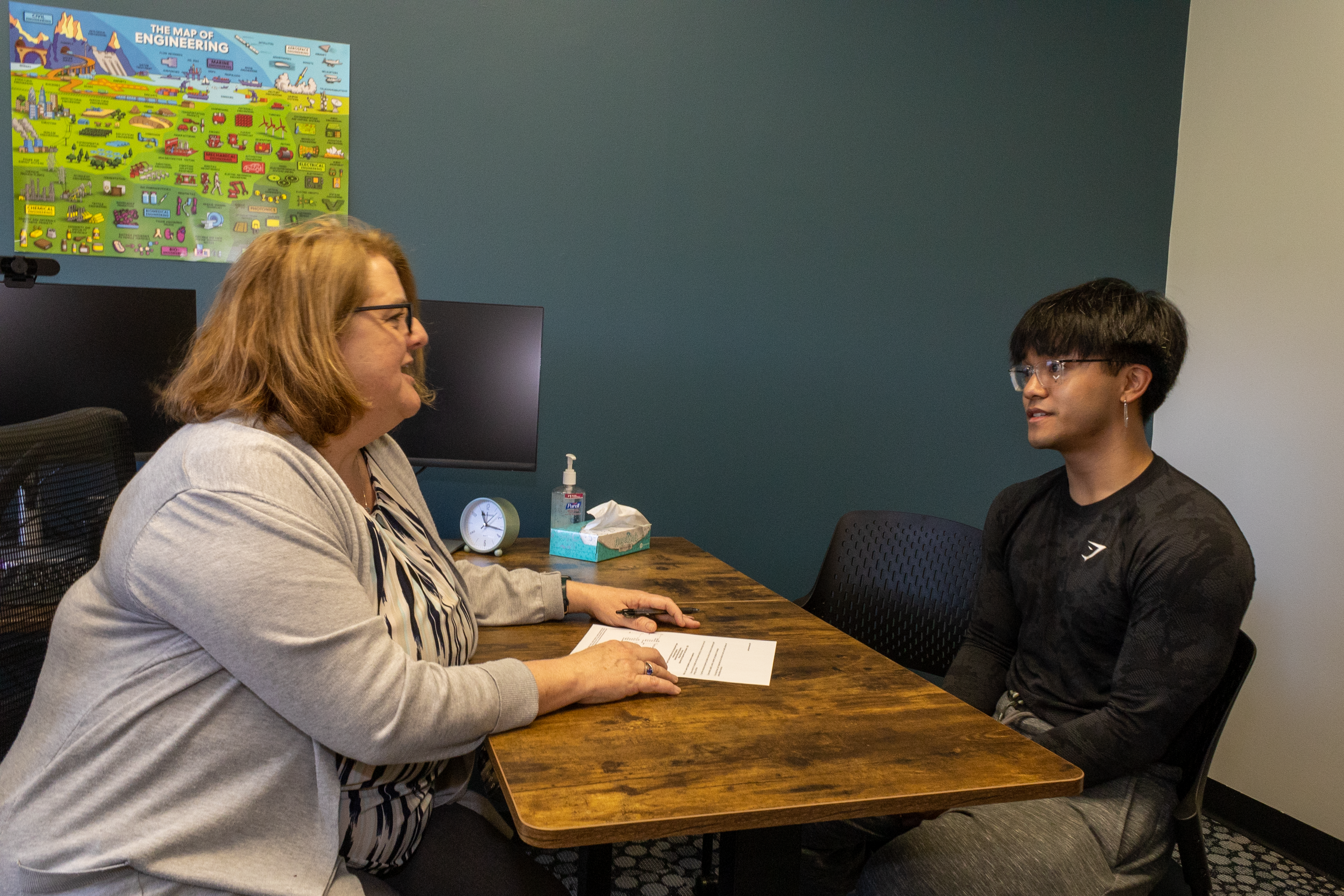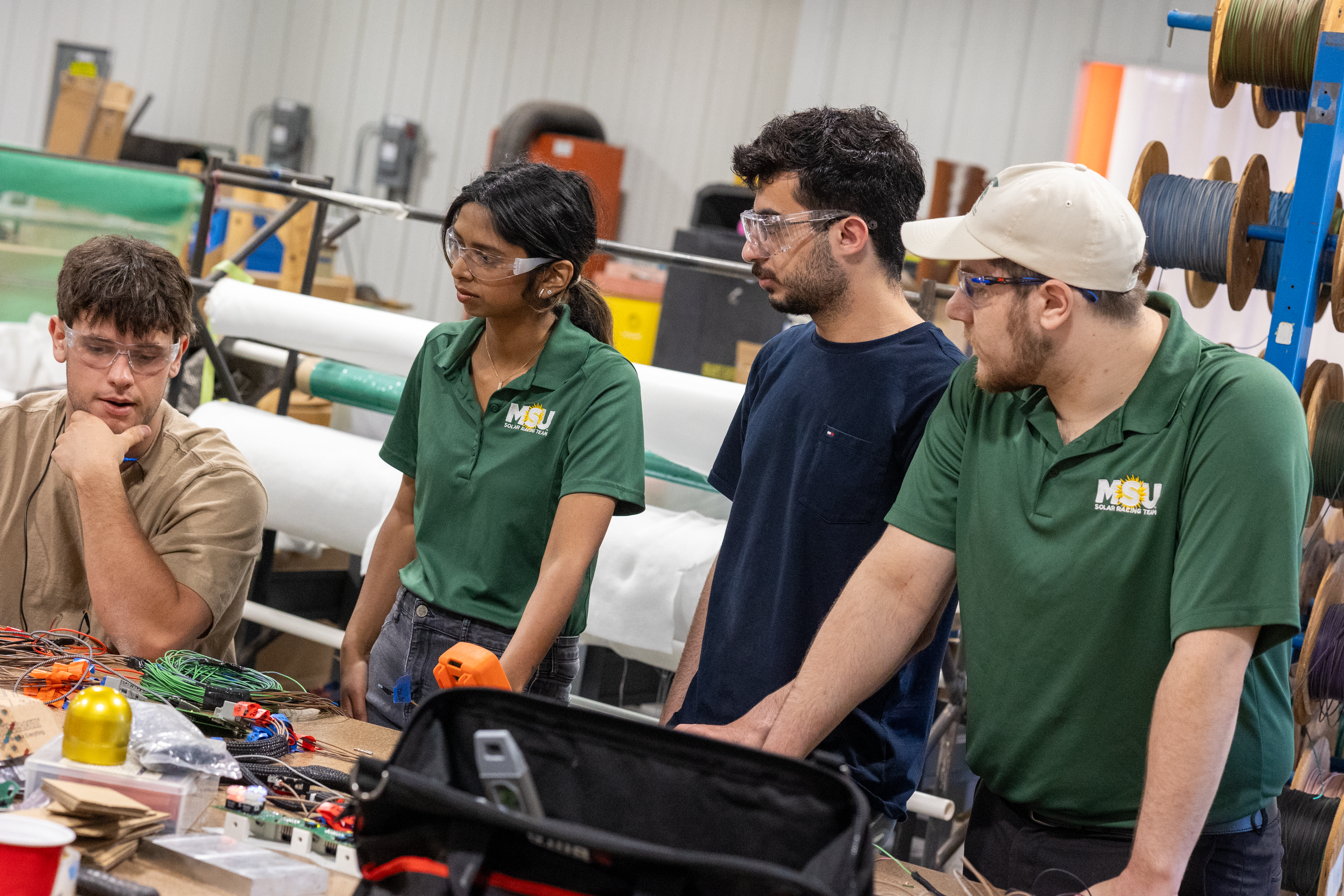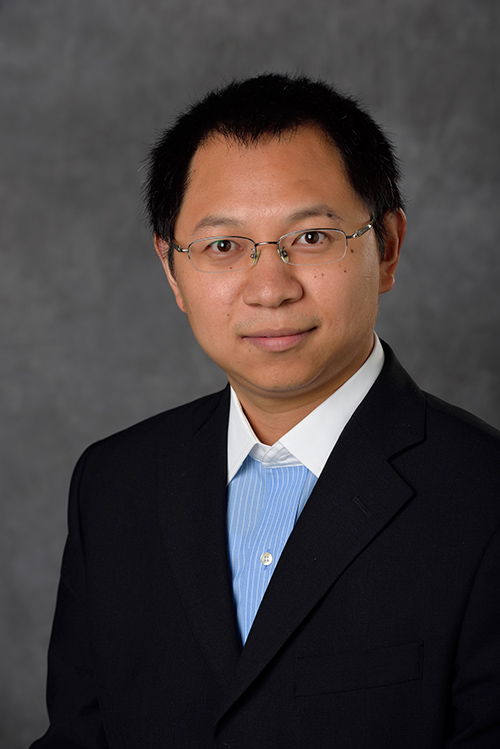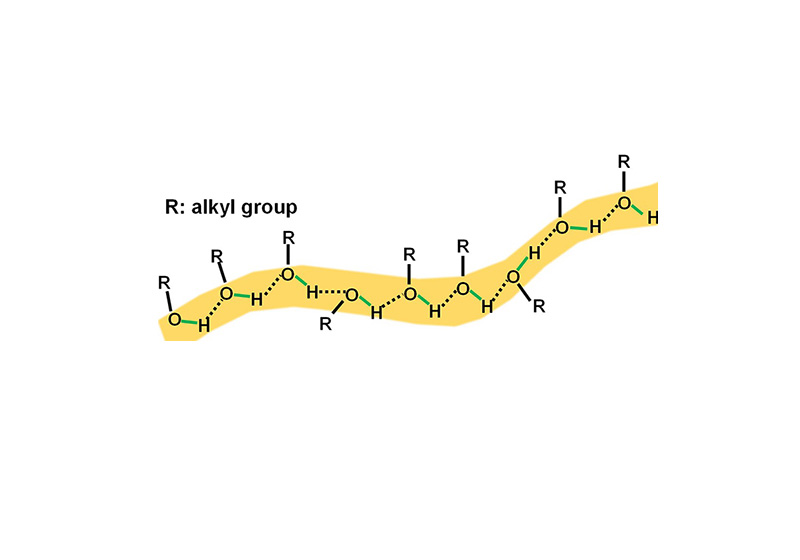Research at Michigan State University is a step closer at resolving a century-old puzzle on the dynamics of H-bonding -- an atomic interaction that helps better understand large cell components like RNA and DNA.
Shiwang Cheng, an assistant professor of chemical engineering and materials science, found proof that small molecular monohydroxy alcohol liquids turn out to behave like “living” polymers or long molecular chains. The research advances questions on the molecular dynamics of alcohols asked by Peter Debye, a Nobel laureate in Chemistry in 1936.
Details of the new study have been published in the respected journal, Physical Review Letters.
Shalin Patil andRuikun Sun, graduate students in the Department of Chemical Engineering and Materials Science, are the first and second authors of the article.
“Monohydroxy alcohols, composed of one alkyl group and one hydroxyl group, are among the simplest H-bonding liquids and are ideal candidates for H-bonding interactions and H-bonding dynamics,” Cheng said. “H-bonding interaction is one of the most important interatomic interaction in nature because it presents in alcohols, water, and bio-macromolecules like proteins, RNA, and DNA.”
Cheng said H-bonding interactions are heavily utilized for engineering applications involving molecular recognition, sensing, medication, new materials development, and enhanced polymer recyclability.
“This research offers a new perspective for a long-standing scientific challenge regarding the Debye relaxation of monohydroxy alcohols,” Cheng explained, “a type of supramolecular dynamics due to the H-bonding interactions. It challenges the prevailing theoretical models, like the transient chain model or the dipole-dipole cross-correlation for Debye relaxation. However, a clear description of the hydrogen bonding interactions and the H-bonding dynamics are still a grand scientific challenge,” he added.
Cheng’s Soft Materials research group at MSU focuses on understanding the polymer dynamics of multicomponent polymeric materials through advanced spectroscopy, rheology, and small-angle scattering, including polymer nanocomposites, associative polymers, and solid polymer electrolytes.
Cheng has received the New Doctoral Investigator (DNI) Grant from American Chemical Society Petroleum Research Foundation in 2020, and the 2019 Ralph E Powe Junior Faculty Enhancement Award from Oak Ridge Associated University (ORAU). In 2018, he received international recognition when he was awarded the Peter Debye Prize for Young Investigators for “significant results on advanced spectroscopy for polymer nanocomposites research.”
This work was mainly supported by Michigan State University Discretional Funding Initiatives (MSU-DFI).
